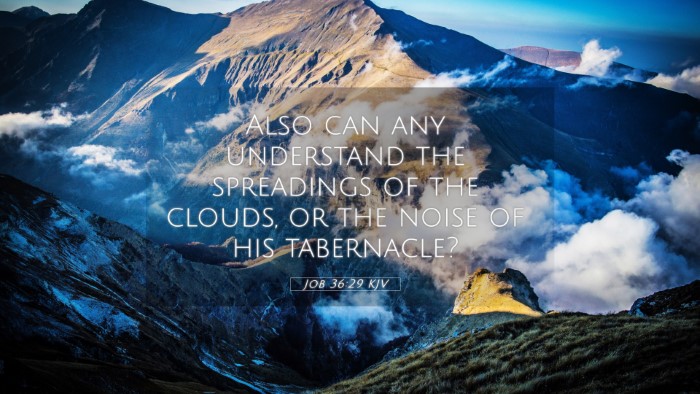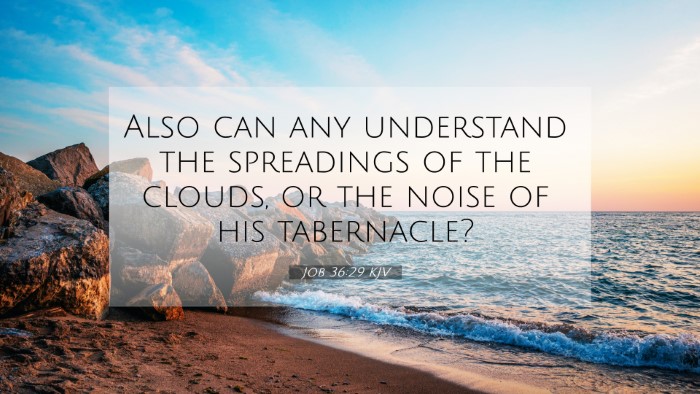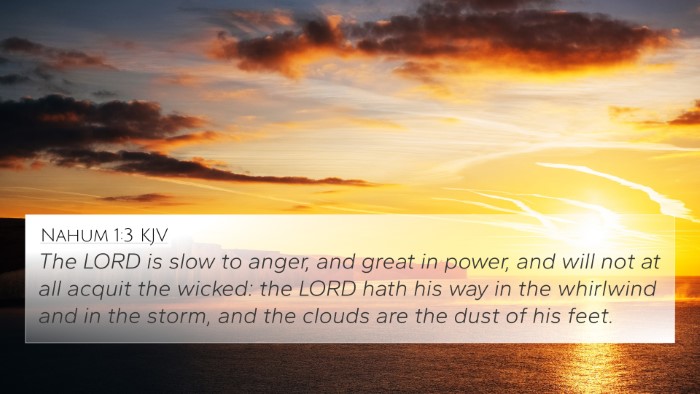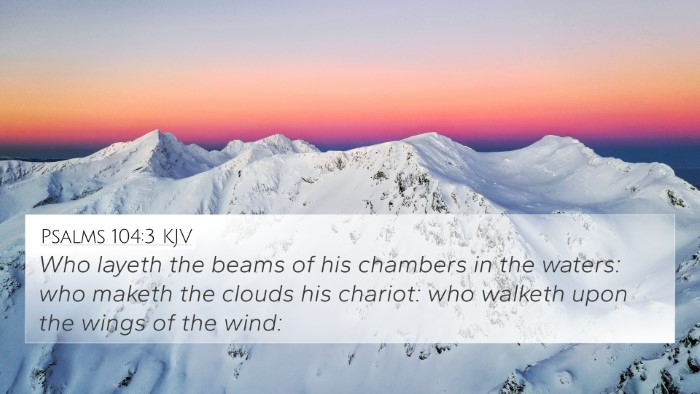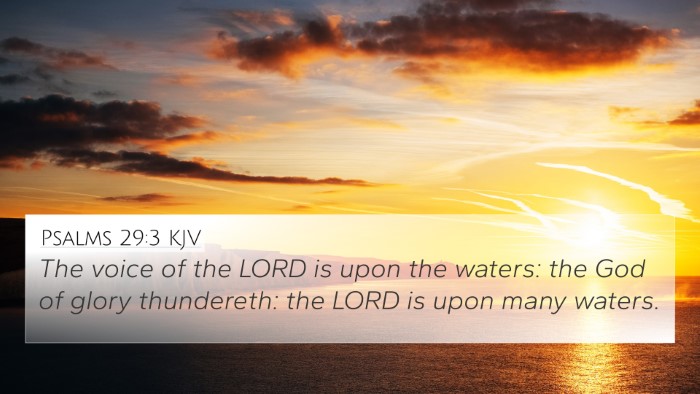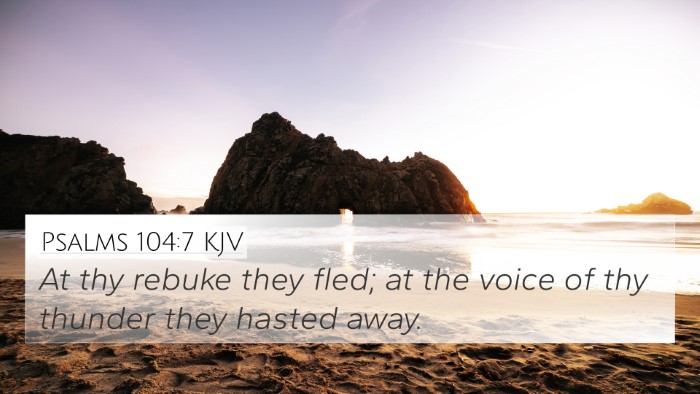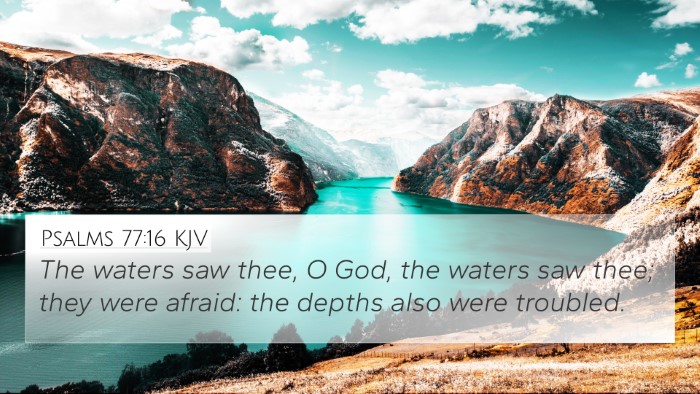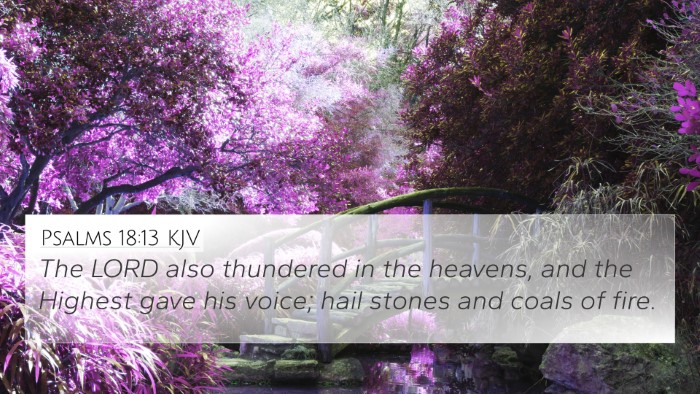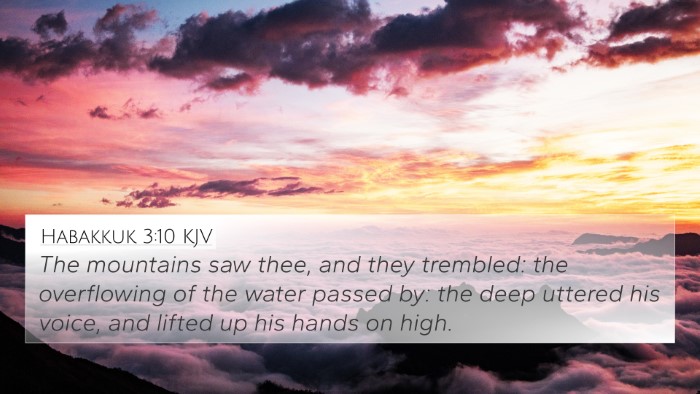Understanding Job 36:29
Job 36:29 states: "Also can any understand the spreadings of the clouds, or the noise of his tabernacle?" This verse explores the majestic and often unfathomable nature of God's workings, specifically regarding His creation and the phenomena of the natural world.
Summary of Meaning
This verse emphasizes several key themes related to God's sovereignty and the limitations of human understanding:
- The Majesty of God: The question posed highlights God's grandeur and the overwhelming nature of His creations.
- The Mystery of Creation: The spreadings of the clouds symbolize God's design in nature, which often eludes human comprehension.
- The Impact of Divine Presence: The reference to "the noise of his tabernacle" suggests God's presence is powerful and speaks to the reverence it inspires in those who witness it.
Commentary Insights
Drawing insights from well-known public domain commentaries:
- Matthew Henry: Henry describes how the verse serves as a reminder of the infinite wisdom of God compared to man's finite understanding. He notes that just as we marvel at the natural wonders, we should recognize God as the creator who orchestrates these phenomena.
- Albert Barnes: Barnes discusses the rhetorical nature of the questions asked, emphasizing that no human can fully comprehend the workings of God. This speaks to the wider theme of faith and reliance on God, acknowledging our limitations.
- Adam Clarke: Clarke elaborates on the imagery presented, indicating that the "spreadings of the clouds" represent not just physical aspects of weather but also deeper spiritual truths about God's provision and protection. He encourages readers to reflect on their perception of nature as a testament to God's glory.
Cross-References
This verse can be connected to multiple other biblical verses that enhance its meaning and provide a broader theological context:
- Psalm 19:1-4: "The heavens declare the glory of God; and the firmament sheweth his handywork."
- Isaiah 40:22: "It is he that sitteth upon the circle of the earth, and the inhabitants thereof are as grasshoppers..."
- Romans 1:20: "For the invisible things of him from the creation of the world are clearly seen, being understood by the things that are made..."
- Job 26:8-9: "He bindeth up the waters in his thick clouds; and the cloud is not rent under them..."
- Psalm 104:2: "Who coverest thyself with light as with a garment: who stretchest out the heavens like a curtain."
- Matthew 6:28-30: "And why take ye thought for raiment? Consider the lilies of the field, how they grow..."
- Psalms 135:7: "He bringeth the vapours up from the ends of the earth; he maketh lightnings for the rain..."
Connections Between Bible Verses
Job 36:29 presents an opportunity for exploratory connections in biblical texts that relate to God's creation:
- Thematic Bible Verse Connections: Exploring themes of divine majesty in Job and Psalms can deepen one’s understanding of God as the architect of the universe.
- Bible Verses That Relate to Each Other: Connecting Job's introspection on nature with New Testament teachings can highlight continuity in biblical revelation.
Tools for Bible Cross-Referencing
For those examining Job 36:29 and its connections, utilizing the following resources can be beneficial:
- Comprehensive Bible cross-reference materials to aid in deeper study.
- Bible concordances that allow users to find related verses based on thematic searches.
- Bible cross-reference guides that simplify the process of identifying interconnected scripture.
Conclusion
Job 36:29 invites us into a profound contemplation of God’s unimaginably complex creation while also acknowledging the limitations of human comprehension. Through public domain commentary insights and robust cross-referencing, believers can enrich their understanding of this passage, allowing it to deepen their faith and inspire worship of the Creator.

